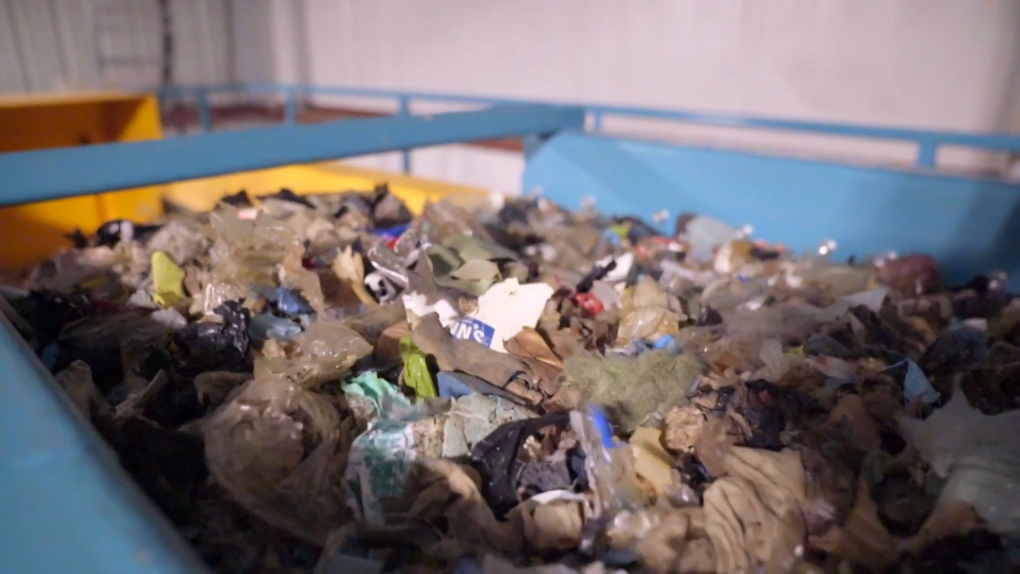‘Groundbreaking’ waste initiative aims to divert 90 per cent of Wetaskiwin waste from landfill

The County of Wetaskiwin is partnering with a Nova Scotia company on a project to transform waste into valuable resources and divert most of its waste away from landfills.
The project with Sustane Technologies Inc. aims to create the “first end to end circular waste solution of its kind in the province,” according to a news release.
“They were by far the most advanced and more looking towards what we wanted to do, we weren’t really that interested in burning the garbage, which is one option,” said Josh Bishop, the reeve of Wetaskiwin County.
“We started looking at this really for economic development reasons, looking to add some revenue sources for the county as well as provide some jobs, and we’re also looking at recycling.
“So that was one of the things our residents have been asking us for is more diversion of certain things from the landfill and these guys provide a solution to all of that.”
Sustane will separate the waste, break down the paper and cardboard back into fibres and shrink and harden the plastics, which can be remade into other plastic products, rather than burying or burning it, according to Peter Vinall, the CEO of Sustane.
“This project aims for up to 90 per cent diversion and recovery rate of municipal solid waste from landfills, which will significantly reduce greenhouse gas emissions by two to three tonnes for every tonne of waste produced,” according to the release.
“Roughly 50 per cent of garbage is paper and cardboard, food, diapers, that sort of thing, and we can turn that into multiple products,” Vinall said. “One, it’s an ideal feedstock to make renewable natural gas…We were fortunate to gain Canadian Food Inspection Agency approval to use that biomass across Canada as a fertilizer.
“The third one, which is probably the least favourable, is just a fuel, a clean fuel like wood, a carbon neutral fuel.”
Normally, the process of using thermal hydrolysis to cook garbage is expensive and low efficiency, but Sustane’s newer automated process will be cheaper overall than landfills, according to Vinall.
“We can extract enough value from the biogenic part, by taking it to renewable natural gas or fertilizer, plus the diesel and (parts) that go back into plastic, we can create enough value there that we can operate with a lower tipping fee less than the cost of landfilling,” Vinall said.
“But not at small-scale, we’ve got to be at a reasonable scale, and so the more communities we can get to learn about what we’re doing, sign up to be a part of it, then it’s better for everyone.”
The project is expected to cost around $60 million and the county hopes it will become a source of revenue.
“We’re looking at a plant of about 200,000 tonnes capacity, we only need 10,000 tons to do our own,” Bishop said. “We’re providing a solution for the entire area and there’ll be a revenue stream that goes along with that.”
The project in Wetaskiwin is one of the first ones for Sustane outside of Nova Scotia, though they hope to keep expanding across North America in the future. The county is hoping the timeline for the project will be relatively short.
“It’s a little bit different than a typical landfill, which would require years of consulting and approvals and permits,” Bishop said. “With the unit that they’re going to be developing here it’s so clean, you’d hardly even know that it was a transfer station or anything of that sort.
“We’re hoping that we can get the approvals rather quickly and be up and running within a couple of years,” he added.
“This solution will provide us ample time to figure out the next solution down the road, but for right now, we can start diverting 90 per cent (of waste) away from the landfill. That’s a good thing.”
View original article here Source









